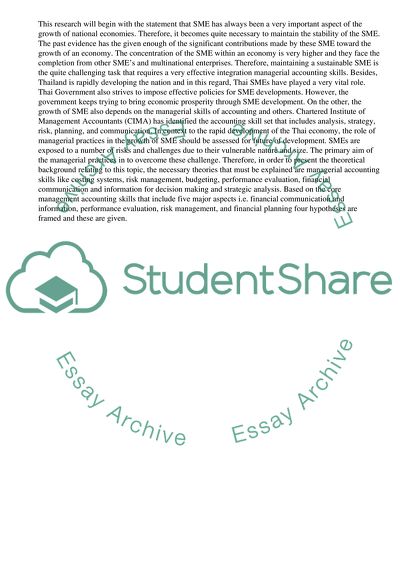Cite this document
(“Influence of Integration Managerial Accounting Skills on Small and Essay - 1”, n.d.)
Influence of Integration Managerial Accounting Skills on Small and Essay - 1. Retrieved from https://studentshare.org/business/1578017-influence-of-integration-managerial-accounting-skills-on-small-and-medium-enterprises-business-toward-the-success-and-growth-of-smes-in-thailand
Influence of Integration Managerial Accounting Skills on Small and Essay - 1. Retrieved from https://studentshare.org/business/1578017-influence-of-integration-managerial-accounting-skills-on-small-and-medium-enterprises-business-toward-the-success-and-growth-of-smes-in-thailand
(Influence of Integration Managerial Accounting Skills on Small and Essay - 1)
Influence of Integration Managerial Accounting Skills on Small and Essay - 1. https://studentshare.org/business/1578017-influence-of-integration-managerial-accounting-skills-on-small-and-medium-enterprises-business-toward-the-success-and-growth-of-smes-in-thailand.
Influence of Integration Managerial Accounting Skills on Small and Essay - 1. https://studentshare.org/business/1578017-influence-of-integration-managerial-accounting-skills-on-small-and-medium-enterprises-business-toward-the-success-and-growth-of-smes-in-thailand.
“Influence of Integration Managerial Accounting Skills on Small and Essay - 1”, n.d. https://studentshare.org/business/1578017-influence-of-integration-managerial-accounting-skills-on-small-and-medium-enterprises-business-toward-the-success-and-growth-of-smes-in-thailand.


